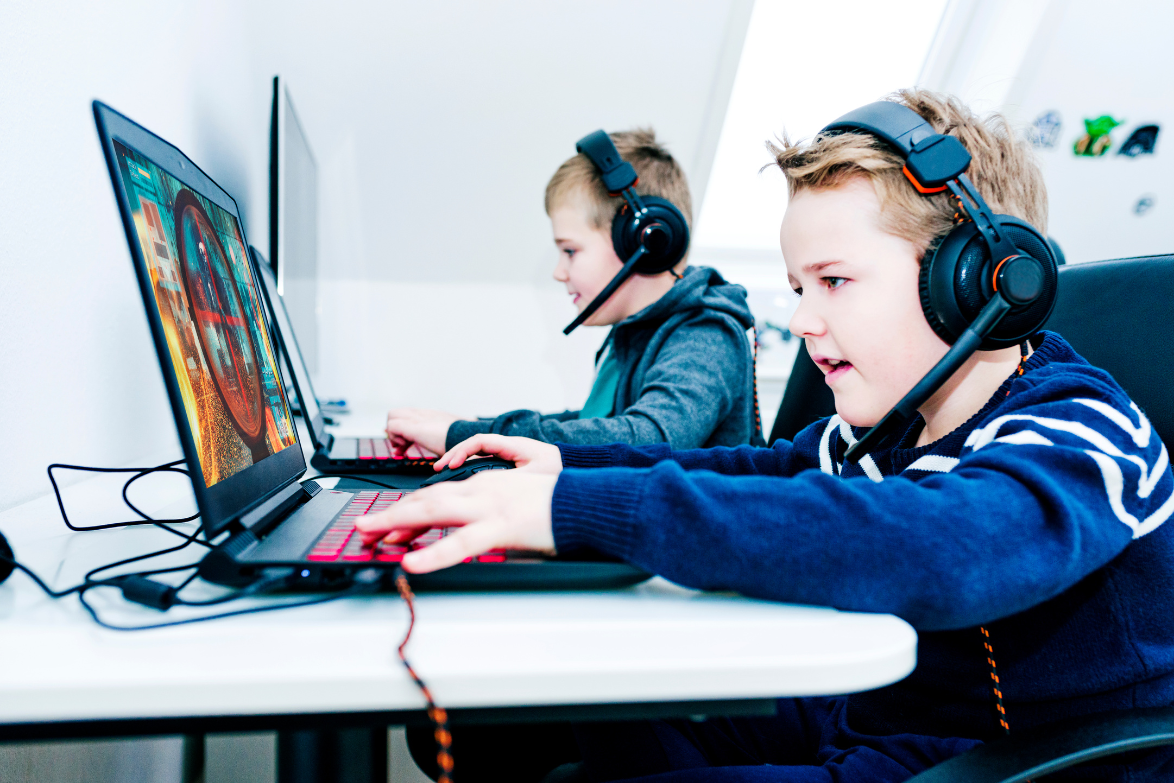Date

This March, North Wales Police’s Cyber Crime Team and the Office of the Police and Crime Commissioner are joining with online safety experts, Get Safe Online to highlight some of the threats of online gaming – and how children and young people can game safely. Get Safe Online is a leading source of unbiased, factual and easy-to-understand information on online safety in the UK.
One of the most popular online pastimes for children, online gaming has both positive and negative aspects. The benefits of gaming can range from developing qualities such as strategic thinking, rationalising, problem solving and persistence to supporting development of a wide range of cognitive and motor skills. What’s more it can encourage creativity while socialising, albeit virtually, with friends.
Risks to children who play games online arise largely from the vast number of people both in the UK and abroad who are also playing, the minimal restrictions and the fact that they are not playing face-to-face.
Tips for safety while gaming online
It’s very important to work with your child to find the best games for their age, interests and personality, and additionally:
• Check PEGI (Pan European Game Information) age ratings of games to ensure your children aren’t accessing inappropriate content.
• Join your child in online gaming from time to time and randomly. This will give you an idea of the games they’re playing and who they connect with.
• Have open and honest conversations with your child about their online gaming and the risks involved including stranger danger, bullying and oversharing. Tell them that not everybody they meet on gaming platforms and forums is who they claim to be.
• Set and monitor limits for the amount of daily or weekly time your children spend online gaming.
• You could pre-load some spending money on to their game, but be clear that when it’s gone, it’s gone, and stick to it.
• Don’t give your child access to your payment card details as extras can be very costly.
• Impress upon your child that they can come to you or another responsible adult with any concerns. Depending on their age, you could also discuss how to report issues to the gaming platform and/or the police.
PC Dewi Owen from North Wales Police’s Cyber Crime Team said: “For lots of children and youngsters gaming is often a very important part of their lives and they enjoy the community aspect of it. It’s an opportunity to socialise, have fun and be creative. Gaming communities are often positive spaces for youngsters to discuss shared passions and interests.
“However, being part of such online communities can sometimes expose youngsters to bullying, inappropriate content or comments or risks associated with stranger contact. It’s important parents or guardians show an interest in their gaming and have open conversations to find out who they are gaming with online, who they’re communicating with and what they’re discussing. It’s important that youngsters understand that not everyone online is who they say they are. Consider setting up parent accounts or parental controls on games consoles to mitigate some of the risks and make sure that youngsters have a list of trusted adults that they can speak to if something worries or upsets them when gaming. It’s also important to help youngsters to understand the benefits of taking regular breaks from gaming and consider setting healthy screen time limits.”
Tony Neate, CEO at Get Safe Online commented: “Many children enjoy the benefits of gaming, but it is important that they do so safely, securely and with confidence. This month’s campaign highlights some expert advice that parents can use when their kids are gaming on the internet. If you have children gaming in your household, I recommend that you take a look.”
North Wales Police and Crime Commissioner Andy Dunbobbin said: “As a father I know how much enjoyment young people get out of online gaming. It’s a pastime that can help them gain new skills, make new friends and, most importantly, have fun. But it also contains risks, and all parents should be aware of the potential dangers of their children speaking to unknown people, spending money online unchecked, or viewing inappropriate content. As Police and Crime Commissioner, I have made safeguarding vulnerable people and tackling cyber crime key parts of my plan to fight crime in region, and I am pleased that we are raising awareness of online gaming over the course of the month with our partners in the Police and Get Safe Online.
For free, practical advice on staying safe online visit www.getsafeonline.org